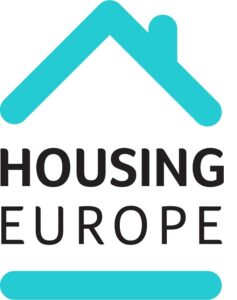Affordable rental scheme in France – using private homes for social tenants

Current market conditions are driving significant amounts of capital towards investment in private rental housing and this has contributed to a decline in homeownership in many parts of the UNECE region.
Description
Sometimes tax incentives are provided to investors in rental housing regardless of the rent-setting or allocation mechanisms being used. However, in France, the “Louer abordable”[1] (affordable rental) scheme attempts to channel some of this investment into providing additional rental housing for households eligible for social housing, by providing tax and other benefits to investors. This scheme has existed in various forms for about thirty years. It currently secures around 9,000 additional affordable dwellings each year and has thus far accumulated a dedicated stock of 100,000 dwellings provided under this tax framework.
[1] To find out more about the scheme, see https://www.service-public.fr/particuliers/vosdroits/F34115.
Actors involved
Agence Nationale pour l’Amélioration de l’Habitat (ANAH)
Scale
National
More information
In its most common form, the Louer abordable sees an owner of a dwelling sign a rental agreement (a “louer mieux” contract) with the Agence Nationale pour l’Amélioration de l’Habitat (ANAH)[1] – the national agency which manages the scheme. As part of this agreement, the owner hands over management of the dwelling to an approved ‘social rental agency’ for a fixed period, usually either six or nine years, though this can be extended after the end of the initial contract if both parties agree.
From the perspective of potential tenants, renting a dwelling provided under this programme is similar to renting a ‘traditional’ social housing unit. Eligibility is determined primarily based on income, but the maximum income allowable varies depending on household size and region.[2] In terms of the tax benefits available to landlords who lease their property under the Louer abordable scheme, between 15 per cent and 85 per cent of the rent can be tax free. Higher rates of tax incentives are available to landlords who rent to those on the lowest incomes, with less generous tax breaks available if the property is rented to those on medium incomes. The geographic location of the property is also considered, with higher tax relief in higher-demand areas. The rent that can be charged is fixed by law and varies depending on factors such as size and location of dwelling.
It is also important to note that in the French system, tax breaks only apply in instances where rent is treated as “property income” and not as “industrial or commercial profits”.[3] In this way, the Louer abordable scheme is attractive for small scale individual investors rather than large corporate investment vehicles.
The Louer abordable scheme also has an important environmental element. Should a property need to undergo renovation works, the owner can benefit from various financial supports provided by ANAH, including a lower VAT rate on works and tax credits. To qualify, the renovated dwelling must meet specified minimum-energy standards. In any case, landlords in France must now offer minimum standards of thermal comfort to legally rent their dwelling.
[1] For more information on the housing improvement agency ANAH, see https://www.anah.fr/fileadmin/anah/Mediatheque/Publications/Les_aides/Dispositif_Louer_abordable.pdf
[2] For more information about the affordable rental scheme, see https://www.economie.gouv.fr/cedef/dispositif-cosse-louer-abordable.
[3] For more information on rental housing in France, see https://www.anil.org/fileadmin/ANIL/Acces_cibles/autres_documents_ANIL/Guide-conventionnement-2017.pdf
https://www.anil.org/dispositif-cosse-deduction-fiscale-louer-abordable/

An initiative of:


